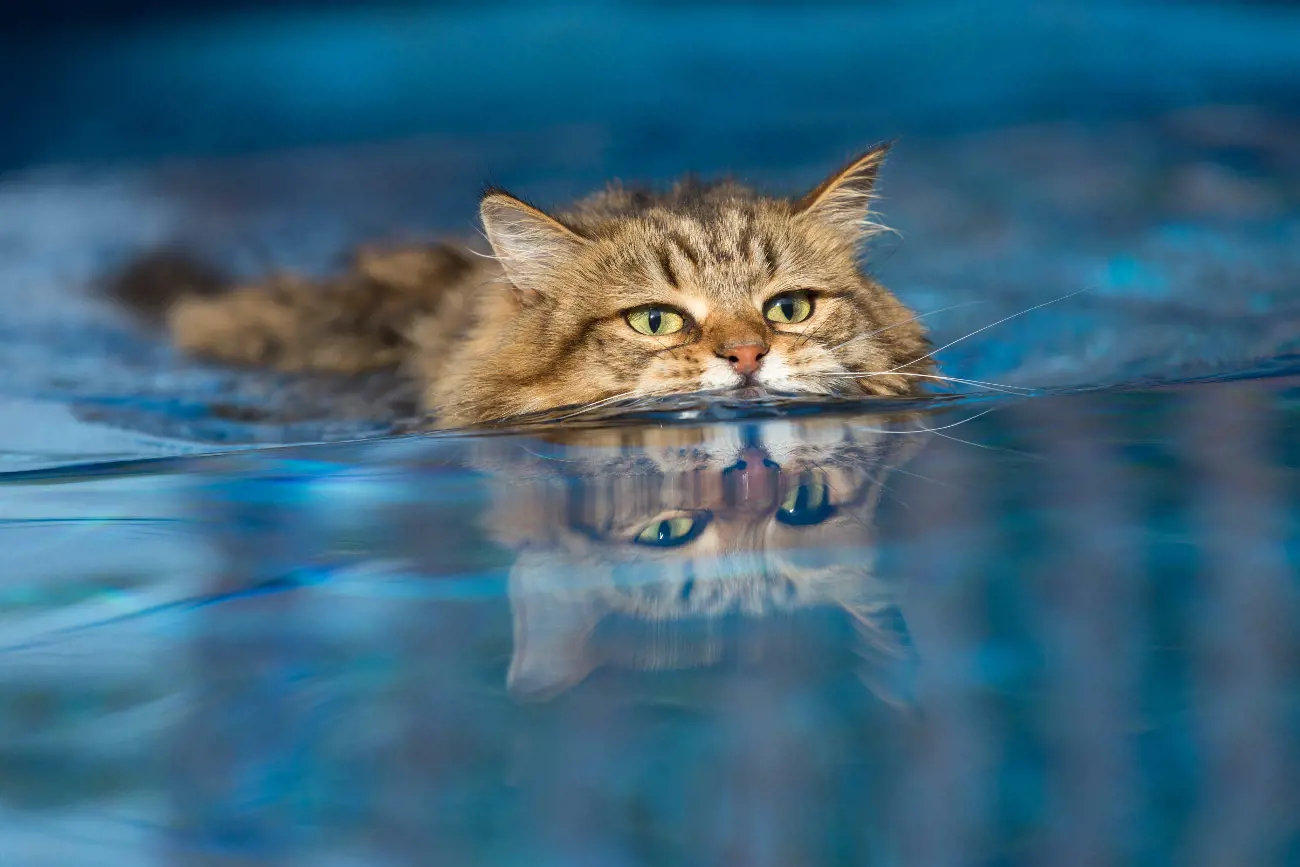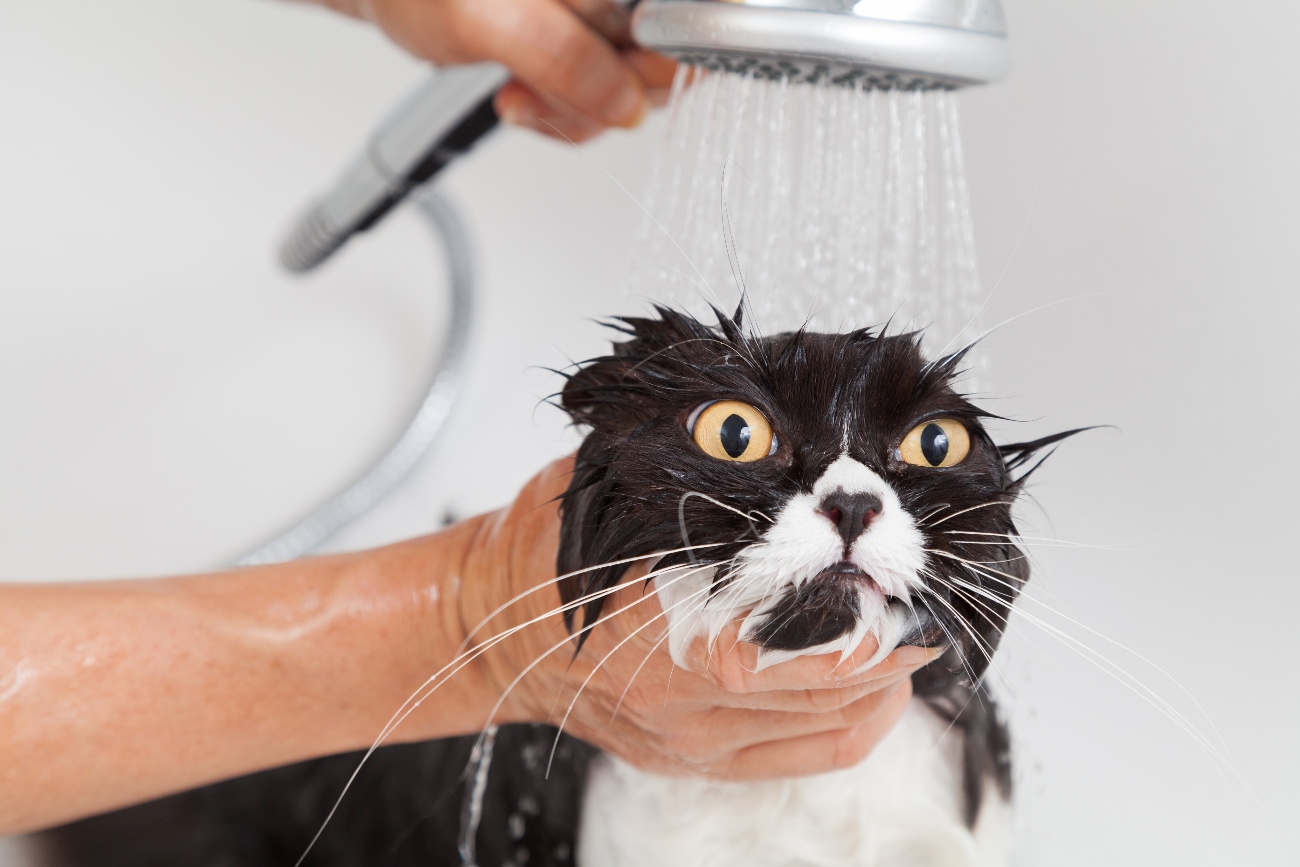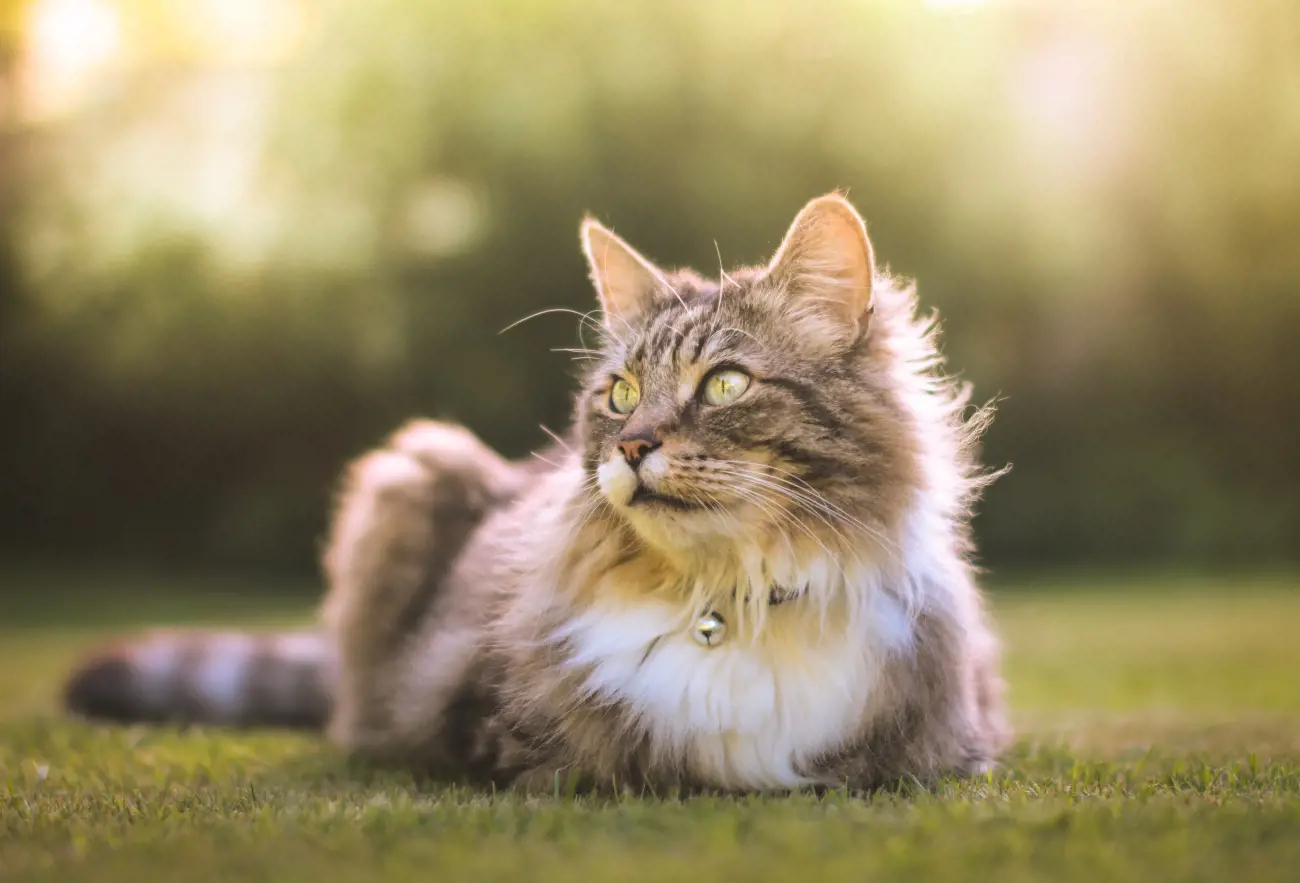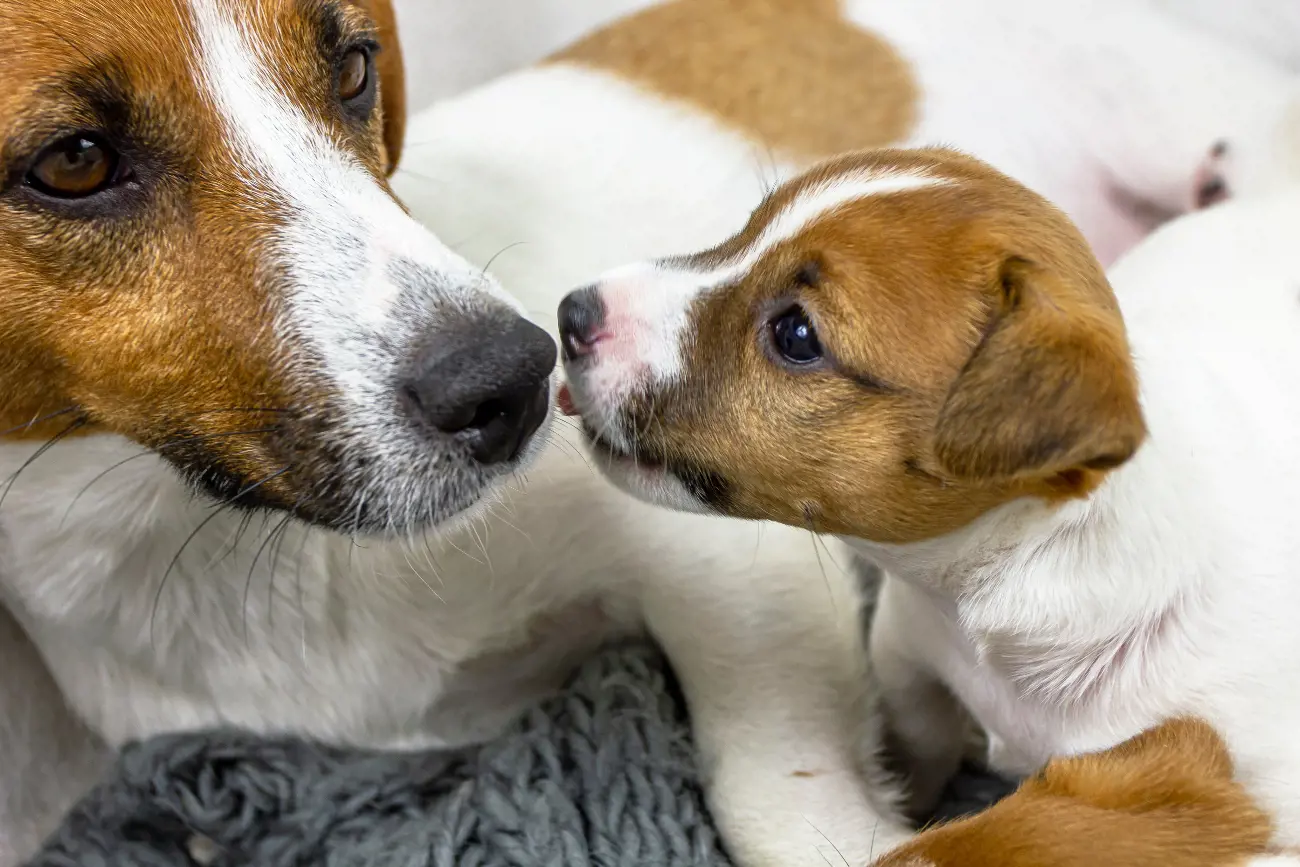Why do cats hate water? A guide to feline hydrophobia
20th December, 2023

No one can deny the mystique surrounding cats and their peculiar behaviours. One of the most intriguing aspects of feline behaviour is their aversion to water.
The answer lies in their evolution. Cats, unlike their canine counterparts, evolved in dry environments, due to which they never developed a fondness for water. Their thick fur takes a long time to dry and can weigh them down, making them uncomfortable.
The fastidious feline - a basic understanding
Cats are notorious for their meticulous grooming habits, spending almost half of their waking hours cleaning themselves. This fastidious behaviour is not only about maintaining their stunning coat but also about their survival instincts and territorial markings.
Cats secrete pheromones into their fur to communicate with other cats, a process that water might disrupt. The resulting scent alteration could be one reason why our feline companions detest getting wet.
The evolutionary perspective
Our domestic cats are descendants of African wildcats that originated in arid regions with scarce water bodies. These wild ancestors didn't need to learn to swim or interact with bodies of water, and this evolutionary trait seems to have trickled down to our living room hunters.
The fear factor and sensory overload
Water is an uncontrollable element for cats. A small puddle or a dripping tap is manageable, but a large body of water can induce a sense of fear and vulnerability.
Additionally, the weight of a water-soaked wet fur coat can hinder a cat's agility and movement, making them feel uncomfortable and threatened. A drenched coat is definitely something your cat would want to avoid.
Cat's sense of smell is far superior to that of humans. They can detect chemicals present in water that we often cannot. This sensitivity can play a part in their water aversion, especially considering that cats are not fond of strong or unfamiliar smells.
The past trauma connection
Past traumatic experiences involving water can also play a critical role in shaping a cat's dislike for it. An unexpected shower or a forceful bath can generate a shock that may linger in their memory, leading to a lifelong aversion to water.
Cats know when you're talking to them so it's important to ensure when exposing your cat to water, you remember to use a smoothing tone of voice.
The exception to the rule
Despite the general trend, there are always exceptions in the feline world. Some cats, like the Turkish Van, also known as the 'swimming cat', have been known to enjoy water.
Similarly, certain domestic cats that have been exposed to water from an early age may be more comfortable around it.
Why do cats dislike water but dogs love it?
Have you ever wondered, "Why do cats dislike water but dogs love it?" The answer lies in their ancestry, experiences, and coat types. Cats are descendants of felines that lived in dry arid areas where there were minimal bodies of water.
As a result, evolution didn't necessitate them to be comfortable with water. On the other hand, many dog breeds have been selectively bred over the years to work in water environments, such as retrieving waterfowl or rescuing swimmers, making them inherently fond of water.
Another factor is their personal experiences and training. Dogs are often introduced to water when they're young, which helps them associate it with fun and positive emotions. Unlike dogs, domesticated cats are not usually given the same exposure, so they may view water with suspicion and fear.
Lastly, the type of coat they have also plays a role. A dog's coat is generally thicker and can repel water better, enabling them to maintain body heat even when wet. Cats have thinner coats that get easily waterlogged, leaving them cold and uncomfortable when wet.
Consider these factors the next time you're mystified by your cat's aversion to water or your dog's love for it. It's all part of their unique charm and individuality! Learn more about the interesting differences of cats and dogs on a blog elsewhere on our website.
Can cats be trained to like water?
Although it can be a challenge, with patience and proper techniques, it is possible to help cats tolerate or even enjoy water. However, remember that each cat is unique, and what works for one may not work for another.
Tips for bathing a cat
The average cat is an excellent self-groomer, making bathing them unnecessary in most cases. However, in certain situations, a bath may be required. If you find yourself in such a predicament, here are some tips to make the process less stressful:
- Gradual introduction: The first step in getting your cat to like water is to introduce it gradually. Start by letting your cat explore the bathroom or kitchen sink when there's no water running. This allows the cat to get familiar with the place first.
- Non-threatening water exposure: After they're comfortable with the surroundings, you can start to introduce water. You could put a bit of water in the sink or bath and encourage your cat to investigate. Make sure the water is a comfortable temperature - warm water is usually a safe bet.
- Use toys: You can also entice your cat with water-friendly toys. Toss a few into the water and see if your cat's playfulness overwhelms their reluctance to get wet.
- Positive reinforcement: Use treats and positive reinforcement when they show interest in water or willingly get their paws wet. This will help create a positive association with water.
- Bath time: Start with just wetting their paws and gradually work your way up to a full bath. Remember to use cat-friendly shampoo and to avoid getting water in their ears or eyes. Dry them properly: Avoid using loud blow-dryers. Instead, opt for a warm, fluffy towel.
- Drinking fountain: If you're trying to encourage your cat to drink more water, consider getting a cat water fountain. Many cats prefer running water and may drink more if they have a fountain.
- Remember: Most cats will react differently to water, and not all cats will eventually love it. Patience is key, and it's essential to respect your cat's boundaries. If they truly dislike water, seek alternative methods for grooming and hydration. Check out our blog on understanding the body language of your cat for more information.
Can you bathe a kitten?

"Can you bathe a kitten?" is a question that often arises among new pet parents. The simple answer is yes, you indeed can. However, it's not as straightforward as bathing a mature cat and requires some special considerations.
Kittens are quite proficient at self-grooming, but sometimes they get into messes that their little tongues can't handle. Maybe your adventurous kitty has discovered the joys of playing in a dusty corner or had a minor accident in the litter box. In these instances, a bath becomes necessary.
Kittens can actually get used to it if you introduce them to the concept gently and gradually. The key is to create a comforting environment.
Use warm water, not hot, to avoid burning their sensitive skin. Also, use a kitten-friendly shampoo, as human and even adult cat shampoos can be harsh on their delicate skin and fur.
The bathing process must be swift yet soothing. Rinse your kitten thoroughly to ensure no soap residue is left behind, which can cause skin irritation or be harmful if licked off during their own grooming later on.
Dry them immediately with a soft towel to prevent them from getting chilled - remember that kittens can't regulate their body temperature like adult cats.
So, while you can bathe a kitten, it's essential to understand that it should not be a frequent activity. Kittens have natural oils in their fur that protect their skin, and regular bathing can strip these away and lead to skin problems. Only bathe your fluffy little friend when absolutely necessary and make the experience as stress-free as possible for them.
Waterless baths as an alternative
If your cat's fear of water is too intense, consider a waterless bath. Pet-safe wipes or dry shampoos can be massaged gently into their fur, followed by a thorough towel rub. This method can also be a more practical and less stressful alternative for both you and your feline friend.
Ensuring your cat's health and well-being
While understanding your cat's aversion to water can be fascinating, it's crucial to remember that their overall health and well-being are what matters most. This includes regular check-ups with the vet, a balanced diet, and adequate exercise.
If you want to ensure that your cat is protected from medical conditions, consider getting pet insurance. For more details or to get an insurance quote for your cat or contact our cat insurance team on 0330 102 5748.
While the mystery of why cats hate water continues to intrigue us, it's evident that there are multiple factors at play, from evolutionary traits to personal experiences and sensory perceptions.
But whether your cat is a water-lover or a hydrophobe, their unique quirks and behaviours only make them more endearing to us. After all, that's part of the allure of owning a cat!
Disclaimer: The information provided in this article is for informational purposes only and not intended to replace professional advice. Always consult with a vet for any health concerns.
Helpful Pages
Recent Posts
Pet Insurance Quote
- 98% claims paid *
- Claims paid directly to vets
- 24/7 vet video consultations
- Interest free monthly payments




